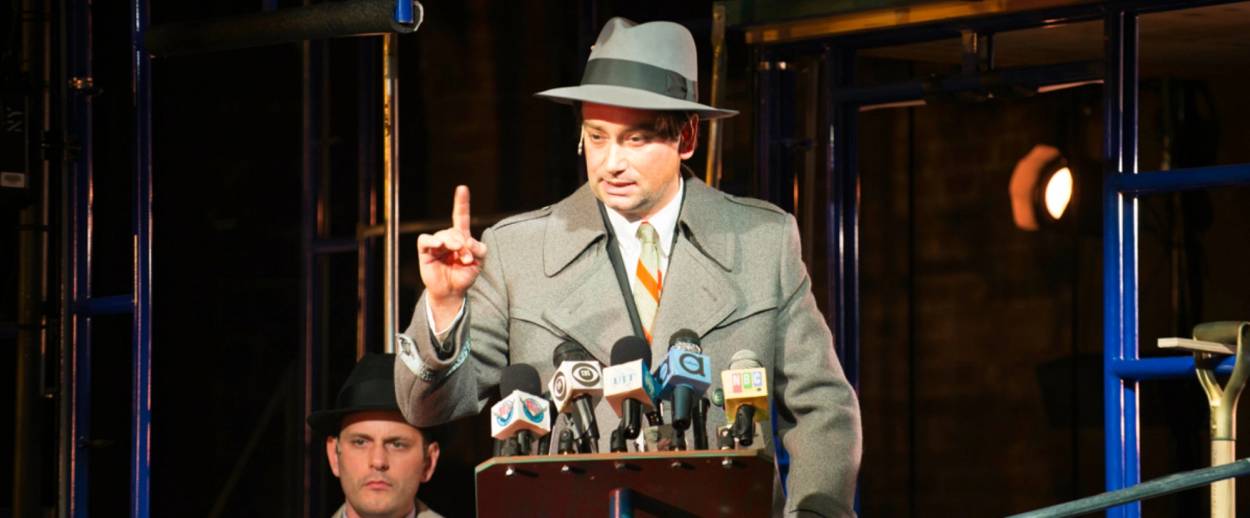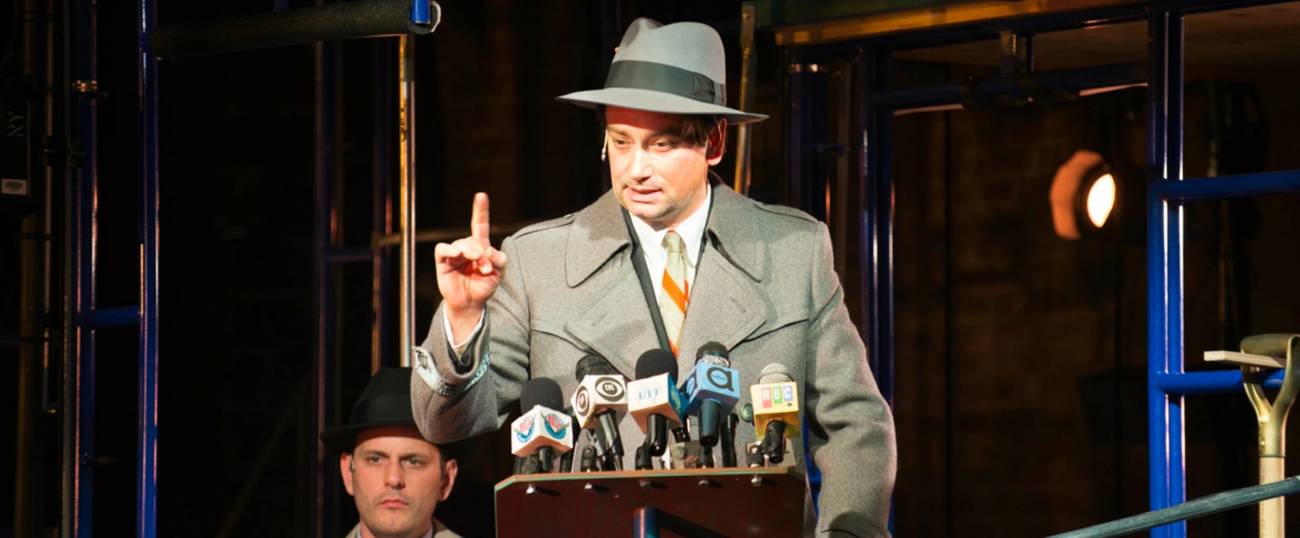Hamilton It Isn’t: The New Robert Moses Rock Opera Falls Flat
Urban planning may be exciting, but the latest musical tribute to New York’s master builder is a turgid dud




Does urban planner Robert Moses seem like an odd choice as the star of a rock musical? Tell that to the creators of Bulldozer: The Ballad of Robert Moses, a new off-Broadway musical featuring American Idol alum Constantine Maroulis as the city planner who transformed New York City in the twentieth century.
Maybe it’s a strange concept, but so is Andrew Jackson as an emo rocker, or Alexander Hamilton in a hip-hop show, and they’ve both featured in amazing contemporary works of musical theater. Heck, even Lizzie Borden tells her story in a fantastic rock musical.
So is giving Moses the same treatment really that much of a stretch? On the one hand, Moses represented order and strict organizational rules—not very rock and roll. On the other hand, he wielded nearly unchecked power ruthlessly—very rock and roll. (In an odd case of timing, there is also a new, non-rock opera about Moses.)
Alas, Moses fails to enter the ranks of Jackson, Hamilton, and Borden. Bulldozer is a turgid work that does little to educate or excite, despite its misguided attempts to do both.
The musical looks back on the life and career of Moses, from his days as a young, idealistic city planner, through his meteoric rise building complexes, beaches, and highways, and his inevitable fall from grace when public opinion and his ego both caught up with him. The musical mentions many relevant projects, from Jones Beach to the 1964 World’s Fair to Lincoln Center, but it never explores them in real detail, or even successfully communicates their impact. Instead, it falls into an amateurish pattern of scenes of spoken exposition grinding to a halt in favor of musical numbers that communicate little at all, and are often agonizing to sit through, despite the best efforts of an earnest cast.
Then there is the matter of Moses’s heritage. He hailed from a German-Jewish family, but was completely assimilated—as well as self-hating. According to biographer Robert Caro in his seminal work about Moses, The Power Broker, the “master builder” rejected Jewish identity so firmly that when he heard the Jewish Encyclopedia was going to include an entry on him, he threatened to sue them for libel.
Still, denial of one’s heritage only goes so far, and Moses faced anti-Semitism over the course of his lifetime. To its credit, Bulldozer tries to bring up this fact a couple of times, but messes even that up.
For example, bafflingly, the show accuses Fiorello LaGuardia of privately calling Moses a “damn Jew,” in several languages at that. Funny, none of the languages he uses are Yiddish, despite the fact that the New York mayor was fluent, being of maternal Jewish descent himself. Did the show’s creators arbitrarily pick a man in power to hold bigoted views, and not realizing they picked precisely the wrong person? It’s one of the show’s many questionable choices.
Things pick up a little when Moses goes head to head with Jane Jacobs (Molly Pope), the “voice of the people” to his remote leadership (in one scene, he literally surveys his accomplishments via private plane). Could urban planning, determining how neighborhoods are shaped, somehow be exciting?
Sure, but you still won’t see it here. Instead you have a discussion of New York’s history that is neither the style of Moses or Jacobs—it is simultaneously too close and mired in minutiae and too distant to make its material accessible.
For those who have the stamina for it, reading The Power Broker—over 1,300 pages long—can be exciting. Moses was a riveting figure whose decisions, partially fueled by his own ego, still influence the way New Yorkers live and travel today. His heinous discrimination against African-Americans and the poor may have stemmed in part from his own insecurities as a Jewish man aspiring to whiteness, though his actions have perpetuated anti-Semitism as well. In contrast to the Robert Caro biography, Bulldozer is a short work, with a rock-infused score, but manages to feel more like a slog. Perhaps the opera is better.
Bulldozer: The Ballad of Robert Moses runs through January 7 at the Theatre at St. Clemens.
Gabriela Geselowitz is a writer and the former editor of Jewcy.com.